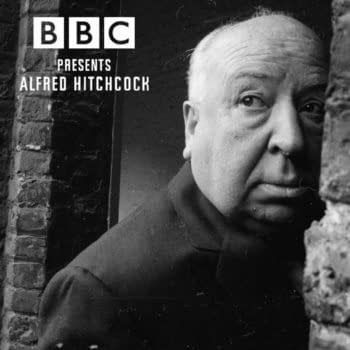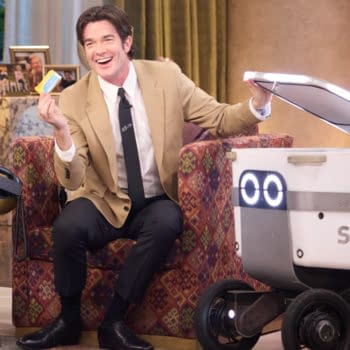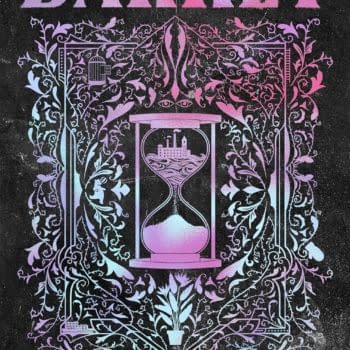Posted in: BBC, Disney+, Doctor Who, TV | Tagged: bbc, disney, doctor who, matt smith, steven moffat, tv ratings
Doctor Who: TV's Apex Predator? Steven Moffat on Ratings, Streaming
As fans fret over the show's ratings and possible cancellation, Doctor Who writer and ex-showrunner Steven Moffat offers some perspective.
Doctor Who fans always find something to wring their hands over, and the biggest is the series ratings. Haters like to gloat that the series' current ratings are lower than they used to be when it was at its peak, but live UK TV broadcast viewership doesn't paint the whole picture since we now live in a streaming world. In the UK, the 18-30 viewership has shifted to streaming over live broadcast, with many viewers preferring to binge whole seasons of a show rather than watch a new episode each week. Steven Moffat was the Doctor Who showrunner for seven years, the longest-serving producer on the show, and saw the modern series during its peak era of popularity in the late 2000s to the mid-2010 before peak streaming began, so he has a certain perspective on things. In a long interview with SFX Magazine this month, he had a chance to offer his thoughts (since he wrote this year's Christmas Special, after all.
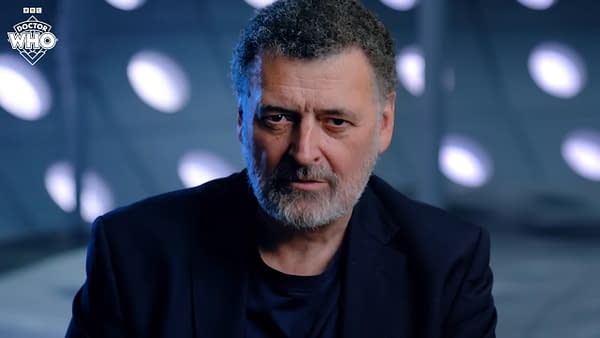
"As I was endlessly trying to do back in the day," said Moffat. "You have to explain to people that you can't run the numbers the way you used to. It makes no sense. The fact that people will binge-watch it possibly three or four months later means that you don't get that gorgeous number to hold up and say, "Look how successful it is!" It's still hugely successful, but you have to batter through all that nonsense, which I find quite tiresome. I don't have to do it myself anymore. Russell has to do all that nonsense, but it is rubbish, especially when a show with smaller ratings than 'Doctor Who' is being heralded as a hit. It really gets on my wick."
Moffat on the Shift from Procedural Standalone Episodes to Serialised Television
"Another challenge is how serialised modern television has become. Even when I was doing 'Doctor Who,' most shows were still story-of-the-week, really. But everything is a complex serial now. Jed Mercurio's entire career is built around complex serials that make no concession to the fact that you haven't just watched the previous episode. They're expecting you to keep up and make notes, which is sort of new. TV shows treat themselves like big novels, which is a good way for them to go.
"But even some lovely bit of nonsense like 'Rivals,' it's a serial. And 'Doctor Who' used to be a serial, back in the day. Alright, it was a series of serials, but nonetheless, almost every single episode ended in a cliffhanger. When we brought it back, we moved it to what was then the more current version of a different story every week.
"What does it do now? Should it be more serialised again? That's the one I keep thinking about. It's not my business to think about these things, and I should keep my trap shut, but I do keep thinking this is the show that does cliffhangers better than any other. Are we missing out on something here? I don't know what the answer is."
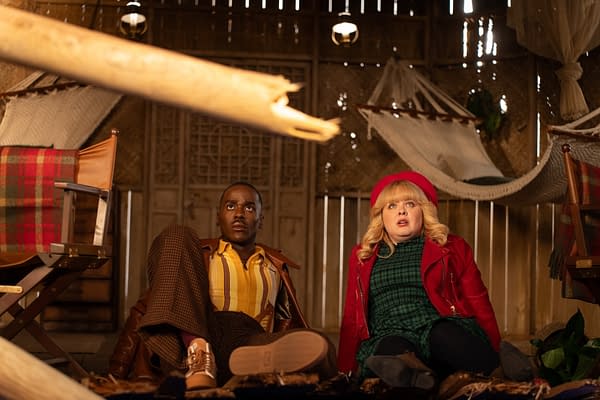
How Doctor Who is Built to Survive Changes in TV Viewership Trends
Moffat believes that 'Doctor Who' is perfectly suited to withstand changes in TV viewing trends due to the strength of the premise and its hero: "It's the perfectly evolved predator, and it hasn't evolved into its final form. It just carries on and becomes yet again a modern television show. Yes, of course, it will adapt. I have absolute confidence it will just carry on.
"The new show is ancient. We call it the new show, but from next year, it will be 20 years old, and there are already 19 years of 'modern Doctor Who' sitting there on iPlayer. That's another challenge that 'Doctor Who' has, of course, which it never had before. The show has all of its past readily available on your iPhone whenever you want it. It does seem ludicrous when modern 'Doctor Who' sits there with all these shows, and it looks like it has a bunch of megastars in it. You forget that Matt Smith wasn't a megastar when he became the Doctor!
"In a bizarre way, 'Doctor Who' competes with itself now – not just everything else on television but 19 years of, I would immodestly say, excellent 'Doctor Who,' just sitting there. And if you're bored of that lot, you've got 26 years of the classic series on the shelf. But if you're complaining about being the victim of your own enormous success, you could point to the words 'enormous success.' Other shows don't have this problem!"
The big takeaway here is that Doctor Who is, in effect, THREE shows: the classic series that ran from 1963 to 1989, the modern revival from 2005 to 2022, and now the Disney+ era that's only going into its second season in 2025. The version you liked is in the past. The new version is here now, and that's for you to make up your mind. When the Disney+ era ends, there will be another, because the show is too popular and successful as a franchise for the BBC to just cancel. At worst, the series will be on hiatus until a new co-producing partner is found. That's how the TV business works. And it must have been fun for Moffat to talk about the show without having to be responsible for its future.



